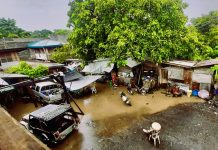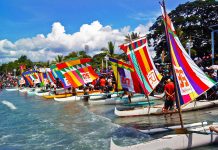Consider these scenarios. Case 1 has 1,000 tourists visiting a destination in one day, spending P500 each per day. That would be a P500,000 contribution to the economy. Case 2 involves only 500 tourists visiting in one day but spending P1,000 each per day—the same amount of money being contributed to the economy. But the second scenario has half of the carbon footprint compared with the first case. It also means half amount of wastes and half demand on scarce resources. Since the local service frontliners will be serving fewer people, it can be presumed that service quality will be better. There will be less congestion in the destination, perhaps resulting to better tourist experience.
There remains a continuing challenge, particularly in rural areas in the country where primary tourist attractions are fragile ecosystems and vulnerable culture. This will be more pronounced as the Philippines has been identified as one of the most vulnerable in the world because of climate change. Weather disturbances are becoming more severe and frequent, putting at risk many ecotourist destinations scattered in all regions in the Philippines. According to data shared by the Climate Change Commission, 98% of coral reefs in Southeast Asia will die by 2050. Approximately one million hectares of grasslands in the country will be prone to fire in the future. Around 60% of the local government units are found along the coastal regions. Increase in the sea level—observed sea levels in the Philippines is 60 cm at its highest, about three times higher than the global average of 19 cm only—will put at risk 62 coastal provinces, 822 municipalities and 25 major coastal cities. This will result in the relocation of around 13.5 million Filipinos.
So, if you are local chief executive, say a mayor of a rural town, eager to reap benefits from the booming tourism industry in the country, but sentient of concepts such as “sustainable development”, “climate change”, etc., you would rather put more emphasis on tourist expenditures than on tourist arrivals. Climate change affects tourism and tourism is also a contributor to climate change.
This brings to the fore the issue of economic leakage in local tourism scene. There are many forms of economic leakage in the sector, particularly in rural areas. The most common is when tourists spend most of their money outside the destination. To illustrate, say a group of South Koreans visited the Tbolis in Lake Sebu, South Cotabato’s banner destination. They stayed in a hotel in Gen. Santos City, accompanied by a non-Tboli speaking tour guide who is not a resident of Lake Sebu on board the vans rented from an operator based in Koronadal City. Purchase of souvenir items was optional, not having been integrated by the tour operator in the total package. And food services were limited to buffet lunch onboard a lake cruise boat, since the morning and afternoon snacks were bought from a fast food chain in the lowlands.
This explains why yearly accomplishment reports of local government offices, despite rosy figures, may not always paint a complete picture. A half a million tourist arrival does not tell exactly how much has been contributed to or retained by the host economy.
Does an increase in tourist arrivals also bring more food to the dining table of the local stakeholders? Do more tourists mean more impoverished children going to school? In the local scene, does tourism truly, genuinely and sustainably become an engine for socio-economic growth, as envisioned by the Tourism Act of 2009?
This coming October 24-26, 2019, the provincial tourism office of South Cotabato will be conducting a 3-day workshop involving members of the city, municipal and provincial Sanggunian in the province. The main target is to come up with draft ordinances and other policy measures that will enable host areas maximize their benefits from any tourist activity. This may involve prohibiting outsiders to serve as tour guides, giving more incentives to private tourist establishments which hire local people and utilize local resources, tax discounts for corporate entities involved in environmental protection and encouraging tour operators improve the service and supply chain by integrating in the tour package mandatory meals and souvenir items.
After all, tourism is everyone’s business.






